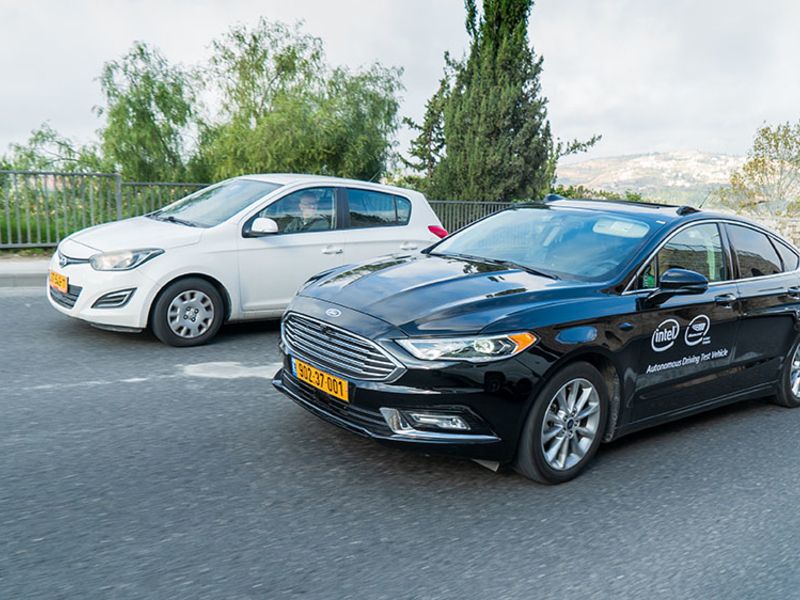
Ford Motor Co. is laying the underpinnings for a future that involves a trove of new and enhanced driver-assist features.
The automaker said Monday it has expanded a preexisting relationship with computer-vision supplier Mobileye, which is owned by Intel Corp., to offer capabilities that enable improved collision warnings, pedestrian and cyclist detection and lane-keeping functionality.
Mobileye will provide its EyeQ computer chips and vision-processing software to enhance features within Ford’s Co-Pilot360 technology package. The two companies have worked together before, but this marks the first time Ford will use the supplier’s technology for the entire life cycle of its next-generation vehicles across the globe.
Michael Ramsey, senior research director at global technology consulting firm Gartner, says the deal signals Ford’s commitment to spreading advanced safety features throughout its lineup and advancing efforts to deploy a system that can be updated once vehicles roll off the assembly line. It also underscores Mobileye and Intel’s progress, he said.
They “continue to dominate in computer vision-based safety systems in automotive,” Ramsey said. “Even if higher levels of autonomy aren’t near at hand, there is a lot of opportunity in the remainder of the fleet.”
Terms of the new partnership were not disclosed.
Ford says it’s also evaluating the use of Mobileye’s Roadbook product for its vehicles. Roadbook collects crowd-sourced data from vehicle cameras already on the road to build a high-definition map that could be utilized for self-driving vehicles — or advanced driver-assist systems such as the Active Driver Assist feature that Ford revealed in June.
Scheduled to launch in the third quarter of 2021, that feature will help Ford compete with the likes of General Motors’ Super Cruise, which allows motorists to take their hands off the steering wheel, though not relinquish responsibility for vehicle operations.
“By customizing Mobileye’s excellent software and sensing technology, Ford’s great driver-assist features will continue to evolve and provide customers with confidence on the road throughout the life of their vehicles,” Lisa Drake, Ford’s COO in North America, said in a statement.
PODCAST: Intel’s Jack Weast on AV safety, CES memories and the China transportation market (From 1/6/20)
The deal brings enhanced visibility not just for vehicles, but to Mobileye itself. Ford says it will display the Mobileye name in its Sync driver-assist displays.
That name recognition comes as Mobileye accelerates customer-facing efforts to become a global mobility provider. In May, Mobileye acquired Moovit, a trip-planning and transit app, for $900 million, that serves as a key component in an end-to-end strategy to launch a robotaxi business in 2022.
Further, Mobileye said last week it had received a permit to test autonomous vehicles on public roads in Germany. The moves build upon the company’s efforts to develop and deploy its own self-driving systems, which it has done in Israel for many years.